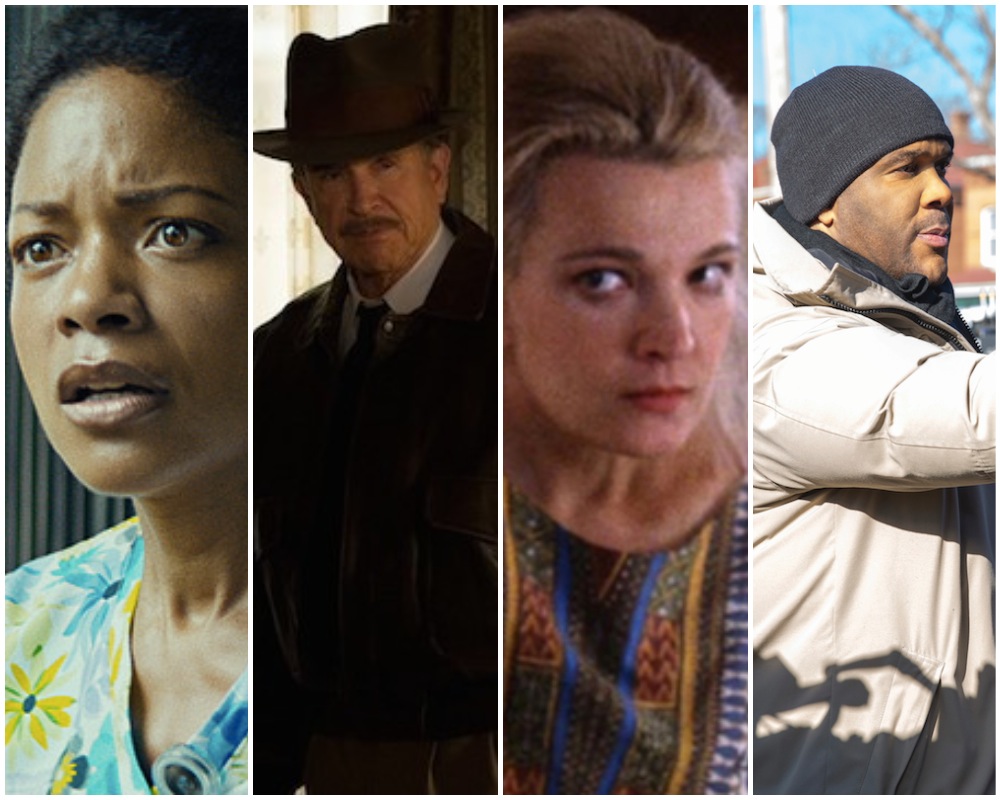Below is a collection of some of our favorite conversations from this year. Each interview features a quote from the conversation, as followed by a link at the end to the full interview. Enjoy this survey into a year of top-notch work from actors and directors, and we’ll see you in 2017.
THE ACTORS
Emilia Clarke of “Me Before You” on Adapting Beloved Characters
It’s weird. With the stuff that’s dusty on that shelf for a while, that’s been sitting there and endowed with a lot of love before I massacre it, there’s a lot more of how can I interpret this? It’s been interpreted by so many people before me, by people or writing or whatever it is. With those, it’s a different path completely. But with this, this was … I innately understood Lou from the first page. It was never a “How can I interpret this?” It was just that I totally understood her. [Link]
Sally Field of “Hello, My Name is Doris” on Whether It’s Getting Easier for Women Over 50 to Get Film Roles
I think it is still hard to find roles, although I can’t really answer that accurately because only now I’ve become an older actress. It always has been difficult for women and doubly difficult with age. I don’t think it is hugely different now. Television and cable along with Netflix and Amazon are inviting new ways to distribute film. It’s possible to make films that aren’t just for young boys in another country and that don’t necessarily cost $200 million. They can make movies that audiences here want to see. [Link]

Naomie Harris of “Moonlight” on How She Picks Scripts
What’s most important to me is that I read something and it moves me. I feel like this is a journey that I would like to go on. I can expand and grow and learn something new about myself that I didn’t know. It’s introducing me to a world I didn’t know anything about. What motivates me is growth. I’m always wanting to grow and learn. Those are the scripts that excite me. [Link]
Tom Hiddleston of “I Saw the Light” on Embracing the Various Roles in His Career
The only thing I really care about is the work. Any actor would say that. That is where my energy goes. I have been very lucky to work with the very best at a young age. At age 20, I was onstage with Vanessa Redgrave and Albert Finney. When I left drama school, I worked with Judi Dench and Kenneth Branagh. I did small parts and supporting ones. What unites great actors is that they take the work very seriously, but they don’t take themselves very seriously. Getting caught up in one’s own narrative is the fastest route south. You can lose your sanity if you get caught up in the perception of others. I try to keep it light and keep my sense of humor. That helps in everything. [Link]

Isabelle Huppert of “Elle” and “Things to Come” on Ambiguity within Cinema
“I think cinema allows you to blur the lines and be as ambiguous as possible,” said Huppert. “It allows you to have the same kind of subtlety that you have in literature. That is how I like to consider whatever role that I take. I look for roles that will give me that space to explore. The camera allows you to have that ambiguity. You can say one thing while expressing the opposite.” [Link]
Anna Karina on Collaborating with Jean-Luc Godard
I have to tell you that we never had any scripts. Jean-Luc never wrote a script in his life. He would write the dialogue that morning before shooting. Of course, he told us a little bit what the scene would be like but we never really knew what we were going to do. We got the dialogue in the morning about five minutes before the shooting and that could be very hard work once in a while. For me, because I was not French-born, I would have like more time to look at the lines. Of course, we had a lot of time to rehearse because at that time, it was difficult to do a lot with the cameras and the focus—we had to hit these big marks that were on the floor because if not, we would be out of focus. [Link]

Zoe Kazan of “The Monster” on the Role that Art plays in the World
Well, we try. Historically, art and music and writing and film have been one of the only tools that is effective against tyranny. People have been incredibly, incredibly brave in generations before us. Progress has only come because there was bravery. I’ve been praying for our world, but I have so much faith in the people I see around me in our community. I have so much faith in the people who voted for Hillary. I encourage everyone to read James Baldwin and Malcom X and Aldous Huxley. To read Primo Levi. To read Silent Spring. To read Toni Morrison. To read Zora Neale Hurston. To read any number of amazing people who came before us. Sybille Bedford, who was a gay woman and a Jew who was openly critical of the Nazis, who wrote against them and had to move to America. There are so many examples in film. People like Ernst Lubitsch, who fled Germany. I take enormous comfort in the generations of artists who came before us and I hope that people can look to people who are outside the factory and feel inspired to do work themselves. [Link]
Ewan McGregor on Playing the Micro and Macro Ideas in Jesus story “Last Days in the Desert”
You have to play the truth of each moment, really. That’s all. You’re not really playing “themes” as an actor, you’re just playing the moment. The themes are in the script and the themes are there, and you understand them, but you’re playing the moment and trying to find the detail and the truth. The themes and the larger picture are things that you discuss with the director and the writer, but you’re not really playing that, I don’t think. Maybe you are in part of your consciousness, but not really. [Link]
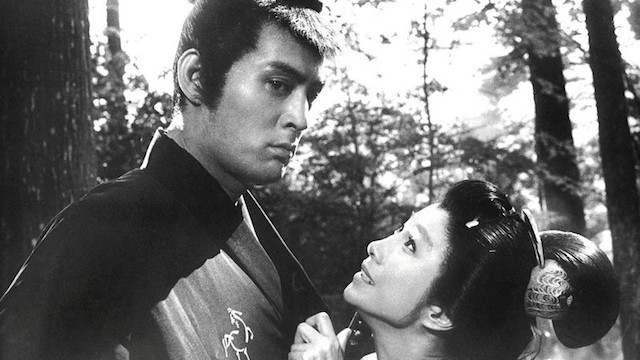
The Legendary Tatsuya Nakadai on What Roles He is Most Proud Of
I’m a Japanese actor, and have been in over 160 films over a career of 60 years. Saying that is kind of embarrassing for me. That might be too many. It’s interesting because films that were critically panned sometimes really stick in my memory. “Age of Assassins,” for instance, was panned, but nowadays it’s accepted in this contemporary perspective. But in regards to direction, screenplay, lighting, cinematography, and all my co-stars? Comprehensively speaking, “Harakiri” is the one that will stick with me, and that I will remember on my deathbed as I pass on. [Link]
Lupita Nyong’o on Working with Director Mira Nair as an Intern and Later a Lead Actress in “Queen of Katwe”
I got Mira tea. She was cutting the film when I interned for her. I worked closely with her assistant, Ami Boghani, and she was just starting her film lab in Uganda called Maisha. I designed their first certificate that they gave out to students. I remember doing that. The first time I designed it, Mira said, “No, that just won’t do,” and I had to start all over again. But what I loved about working for her is that she doesn’t mince her words. She is so honest and without guile and it’s well-meaning. And now, working with her in front of the camera, I know she is not going to butter me up, she is going to tell me like it is. Which is good, because you know exactly where you stand. [Link]

Gena Rowlands on Her Character in “A Woman Under the Influence”
I also liked the fact that in that film, I was a little wacko, but my husband understood that and he loved me, and it didn’t bother him that I was as strange as I could be. When I have this terrible breakdown and have to go away for a while, leave him and my children, oh—that’s a hard scene. We’re showing a hard moment in a person’s life, a terribly hard moment. Then she comes back and they try to make it easy for her as possible. It’s just so good, all the scenes. [Link]
Michael Shannon of “Nocturnal Animals” on Resisting the Notion of Being a Big Star
Yeah, well some people wonder like, ‘All you do is act, are you going to lose touch with quote-unquote reality, if you’re insulated?’ But, so far so good, I guess. I don’t mean to sound cocky, but I guess the one thing I always try to do, I always resist the notion that I’m sort of star or something. I still walk down the street, take the subway, try and stay in the real world as much as possible. It’s so you don’t become some insulated pompous asshole who doesn’t have the slightest idea how the world works. Like Donald Trump. [Link]

Hailee Steinfeld of “The Edge of Seventeen” on Directing Someday
I haven’t worked with a director I haven’t liked thankfully, and everyone that I have worked with is so passionate. Every time I see them do what they’re doing, I’m like, “I just can’t wait to be in that position and really be at the head of something that could be great.” It feels so terrifying, but it’s something that I would absolutely love to do. Even producing—putting something together from the ground up—is of interest to me, and it always has been. [Link]
Tika Sumpter of “Southside with You” on How She Relates to Her Character, Michelle Obama
I think there’s a lot. At first I was thinking of what you feel when you see Harvard and all that, and I’m like “Ooh, I never could get into Harvard” [laughs], or at least I don’t think I could. But really, it’s just a girl from the south side who worked really hard, who was told “No” a million times about school and what she can do, and who came from a really hardworking family, so I relate to that a lot. She has an amazing relationship with her siblings, I have more siblings than her but she’s a normal, actual woman who is just really smart and chose the right person for her and they both collaborated and here they are now. I definitely see myself in her, I think a lot of people do. [Link]
THE DIRECTORS
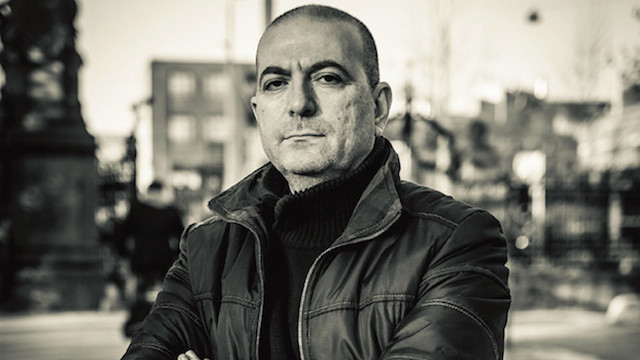
Hany Abu-Assad of “The Idol” on America’s Calendar of Blockbuster-saturated Films
It’s not about the story or the characters or the experience, just the special effects. We become circus-makers rather than filmmakers. It’s a circus, and it’s going to become very boring very soon to everybody. We’ve seen the same kind of explosions again and again. The talent will then go off and find much better work on television, while filmmakers will have destroyed their own industry by making the general taste of audiences more and more tasteless. [Link]
Warren Beatty of “Rules Don’t Apply” on What Ronald Reagan Told Him About Actors and Presidents
We, of course, disagreed on pretty much everything politically, and we would joke about it. He was a very fun person to be around, and I became friendly with him before he was Governor. Not close, but friendly. And he had invited me to bring “Reds” to the White House—a 3.5-hour movie with an intermission about a Communist who dies. At intermission, we went out, and I remember him saying, and he was not trying to be funny: ‘You know things are happening now. People are saying there’s no business but show business. And I don’t know how anyone could be President today without being an actor.” And he was not joking. I’ve been haunted by that lately. [Link]

Damien Chazelle on an Experience of Rejection Long Before “La La Land”
It’s the rejection letters and the formal rejection letters that you get really used to. I remember my very first film, even before “Whiplash,” a musical (“Guy and Madeline on a Park Bench”), I remember during that week where all the filmmakers talked about getting their Sundance calls, getting both the Sundance rejection letter but also the Slamdance rejection letter at the same time, and having them both staring at me in my computer screen. And I was spending Thanksgiving with my grandparents and I was like, “This fucking sucks. I just want to be in a room alone right now, I can’t do Thanksgiving right now!’ [Link]
Don Cheadle on the Unconventional Approach to his Miles Davis Biopic, “Miles Ahead”
Looking at his life and bumping into this period when he was not making music or being creative—one of the most prolific and creative artists of the 20th century shutting it down for five years—was a particular point of interest to us as storytellers. We thought this was a good place to create a narrative about how he comes back and what the components are for that. We wanted to externalize an internal process. The way it is constructed, he is asked how he would put it and he puts the horn to his lips and blows. That is what this movie is—he plays the answer. [Link]

Julie Dash on What She Wants New Viewers to Take Away from “Daughters of the Dust“
Just take a look at it. Hopefully they will get something from it. Something that moves them in a way to learn more about their own family, their own history, their legacy. And to know that we’ve retained a lot of what our ancestors brought with them from Africa and there are a lot of wonderful things that we do everyday, today from that. Nothing really deep. Just a celebration of where you come from and who you are, and survival mechanisms that we employ over the years. [Link]
Brian De Palma on His Films Resonating with Viewers
A movie is a work of art. It either exists and people keep looking at it, or it vanishes. So, I have very little to do with it, and a movie has basically got to find its own way. And many of my movies, people are still looking at 30 or 40 years later, so I guess there’s some value in it, because they’ve existed through the ages. [Link]
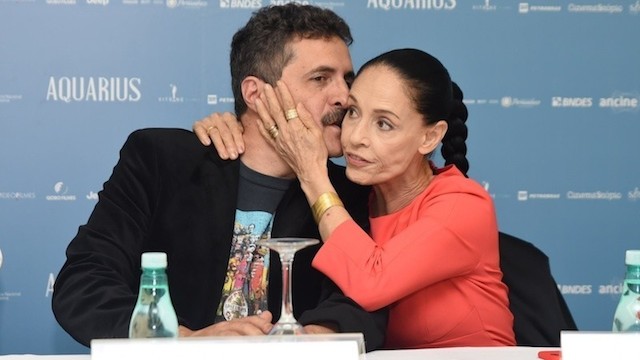
Kleber Mendonca Filho on How His Film “Aquarius” Reflects How He Deals with the Past
For me, it’s part of being human. I’m 47 now, and I’m at that stage where I’m still young but I’m not young. I’m not old but I’m getting old, and I have stuff at home that reminds me of people and places. I have two kids now and through watching them, I keep having flashbacks to my own childhood. When I talk to them, I remember my father talking to me, so it’s understandable that I would make a film like “Aquarius.” A very good friend of mine saw the film, and she said it was clear that it had been made by someone who had just become a father. [Link]
Anne Fontaine of “The Innocents” on the Important Factors When Making a Film
For me, to be a director is to be in this mood—to be sure that this story is alive. We’re going to give birth to the characters. We have to create the truth in the story. When it’s on paper, when it’s a script, it doesn’t exist. You have to be sure that this woman is going to exist with all of her complexity. That’s the reason the cast is so important: if you don’t have the perfect interpreters, you’ll miss the thing you are trying to catch. In each movie, it’s another problem to solve. [Link]

Werner Herzog on the Cautionary Feel of His Environmental Documentary “Into the Inferno”
We are just a blip. I found it very interesting when Clive [Oppenheimer] interviewed the Ethiopian scientists and asked them, “Do we have another 100,000 years?” In their calculation, mankind will be entering a very critical phrase a thousand years from now. It’s not because nature is angry, it’s rather that we are stupid. We’re not doing the right thing with our planet. As for the “anger” of the volcano, we leave it up to the local populations who create their demons, their gods and their divine punishment. [Link]
Barry Jenkins of “Moonlight” on Making Films that People Relate To
It’s not intentional. If you try to create something that everybody can relate to, you’re gonna make something that nobody can relate to. I often say, this movie is made for an audience of two: myself and Tarell. It’s meant to be shared beyond us, clearly. But it’s meant to do right by an audience of two. I’m trying to get to the bottom of how the concept of manhood affects Chiron. And then how the people in his life are enacting this projection of manhood. That’s the box I have to work in. It’s great because the box is that small I can put my whole self into it. Once I’m working at that level, these things happen that I can’t control. These things have this beauty and this potency that they wouldn’t have if I was trying to engineer them. [Link]
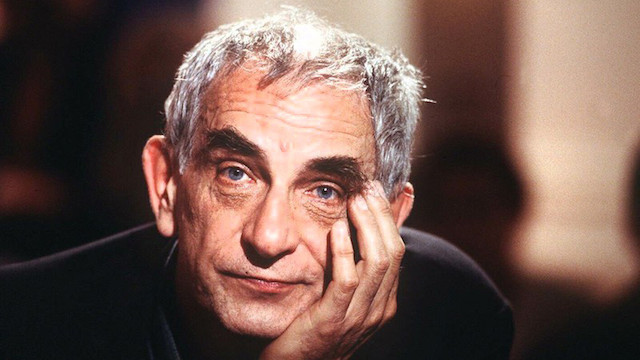
Krzysztof Kieslowski on How He Works with Actors
I try to give them all a sense of freedom, and let them feel that they bring more to the film than their craft. They used their life experiences, and I gain from them. I love them with all of their virtues and faults, and all of their hysteria. We simply sit down for days and weeks and simply chat. With female characters the biggest problem for me is to finding the right actress beforehand. If I can find the right actress then I’m sure she can find the right means for what she wants to say. [Link]
Karyn Kusama on the Freedoms of Working with a Low Budget for “The Invitation“
Making the film for a low budget allowed me creative control that I hadn’t had for a while. I had final cut on this film, and I just was able to really engage in it purely for the film itself. I wasn’t in it for the money, that’s for sure. And in a way, that kind of financial austerity allowed me total freedom of mind. I just wanted to be thinking in the cleanest, clearest way possible about what I wanted to achieve with the film, given my limited resources. It was a really satisfying, creative experience. [Link]

Pablo Larrain of “Jackie” and “Neruda” on How to Tell a Different Biopic
What you need to do is portray a person that is at risk. When they’re at risk, they create fascinating things. That’s how you create friction, and how you’re able to do something that the audience will be able to deal with it. Otherwise, you’re bring them an over-digested movie. [Link]
Tyler Perry on Not Having Writer’s Block
I don’t have it. Isn’t that great? It’s almost like a bit being a little insane; I’ve got so many stories in my head and so many people talking that I literally have to shut down, like shut out characters to start writing other shows. They all want to talk when I start. See, you’re going to make me sound crazy! But I sit down at the computer and I start writing a show, and especially a show like, “The Have and Have Nots” has been on for over a hundred episodes, “If Loving You is Wrong” is probably about 80 now, and so I know those people; “Too Close to Home” just started, it’s got 16. But I know them. So when I sit down to write I can tune into them and hear them, is what I mean. [Link]

Lorene Scafaria of “The Meddler” on Why Movies Talk About Death but Not Grief
I think it’s a scary thing. For the same reason it’s so hard for these people to communicate about anything, about what they’re going through, about the person they’ve lost. I’m sure it’s worse when you don’t like the person who’s left—I don’t even know. But knowing what this is like, I certainly felt like maybe people who were in similar situations could get something out of it—maybe find empathy in each other. The movies that seem to tackle [death], always seem to sacrifice reality for some quirk. I didn’t really want to do it. I wanted to dig in. It made it easier that it was through the eyes of a person handling themselves relatively well. She’s got a very deep surface. [Link]
Roger Ross Williams of “Life, Animated” on His Relationship with Movies
I didn’t have a lot of exposure to films as a kid, and I never went to the cinema. I had a single mom who just planted me in front of the television. But while growing up, I lived in my own fantasy world. I had kind of a rough childhood, so I created my own reality. That is what I was more drawn to—creating stories while changing and altering reality. [Link]

Alice Winocour on the Films that Influenced Her PTSD Thriller “Disorder”
I was inspired by many films. I looked at a lot of them in preparation for the film and even during the writing. There were many different kinds of film as well. First, I was inspired by films like “The Conversation” and “Take Shelter” by Jeff Nichols—films with paranoid protagonists whose perceptions shape the narrative. I was also inspired by films that are more sensorial, like Antonioni’s “La Notte” or “Blow-Up”—that kind of very atmospherical storytelling. [Link]
